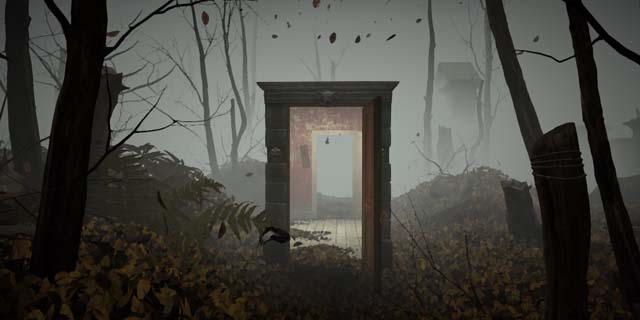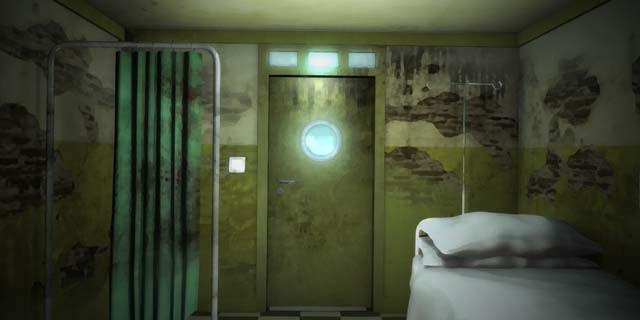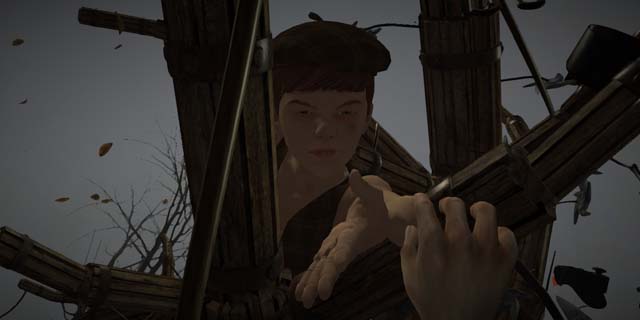
Datura is named after genus of plant life that is known for its hallucinogenic properties, which is a perfect way to describe the game: A hallucination. The PSN title never really clues you in as to whether or not you are viewing fantasy or reality, and manages to keep you in a constant state of confusion. Everything in the game feels uncanny, and leaves the player wary and unsettled about their surroundings.
This is a game designed through and through for Sony’s PlayStation Move controller. Sure, you can use your standard pad, but the control isn’t nearly as intuitive or interesting that way. In the game, you control a hand with the motion controller, and use it to accomplish various puzzles like point-and-click adventure games. The puzzles are never terribly challenging; in fact, you can hardly call most of them puzzles at all, just tasks to accomplish. Some can be frustratingly obtuse (especially a particularly infuriating xylophone puzzle near the end), but nearly all of them make engaging use of motion controls to immerse the player. This is Datura’s greatest strength: drawing the player in with intuitive controls and an intriguing world to explore.

The slow, mellow pace of the game’s hub area serves as an effective contrast to the game’s many hectic dream sequences. Your character can only move so fast, which creates a sense of urgency during many of these admittedly tense and fast-paced scenes. It works as a study of our own emotions when put into a position of powerlessness. Since you still obviously have control during these parts, it allows the player a bit of introspection as to how they deal with problems. I’ve seen a few different people play Datura, and each person played it differently.
However, due to the game’s linearity, this fascinating mechanic was not used to its full potential, and remains only a passing curiosity. If Datura had a more focused goal of narrative through gameplay, this could have been something very special, demonstrating the strengths of an interactive medium. Still, I wholeheartedly commend the game for attempting a new narrative format. This is the kind of effort that pushes the industry forward, and the gaming public is all the richer for the works of independent developers.

Many of the dream sequences can be quite haunting, taking away what sense of security the player had and possibly evoking paranoia. It isn’t that Datura is a horror game. It’s just a game that connects with players on an emotional level, as opposed to a logical one. As there is no explicit narrative or goal laid out for you in Datura, you are encouraged to discover what to do next entirely by yourself. This can lead to some frustrating impasses due to tired “adventure game logic” but, for the most part, there are enough subtle clues in your environment to guide you to where the game needs you to go.
There is not a single line of dialogue in Datura. There is hardly any written text, either. This allows the player to draw their own conclusions about their environment, and let their minds roam free. It is subtle enough to give the player the pieces of the puzzle – the barebones framework of a story – and let them assemble it how they wish. I would love to see this type of storytelling used more often in games, since saying nothing is often the best way to say everything at once.
The presentation of Datura is unearthly, somber and detached. The color palette is a muted selection of browns, grays and blacks, set to the backdrop of a foggy autumnal wood. The environment and presentation go hand-in-hand, creating a secluded, dreamlike world to explore. The use of fog to obscure far-away areas is a well-executed trick to keep the player focused on the area at hand. The graphical fidelity is nothing to write home about, but independent games can’t be expected to match the big-budget visuals of large studios. The soundtrack, while small, creates a mysterious air that encourages the player to explore their surroundings. At times it’s even startling. This is done through heavy use of string instruments playing a score with many attacking notes, sometimes to contextually alert the player and other times to snap them out of a potential daze.
On one hand, Datura is a bold and fascinating take on interactive storytelling, and should be praised for breaking new ground. It also makes inventive use of motion controls, in the way that most gamers expected them to be used when they were first introduced. On the other hand, it is very short, very linear and very confusing, and it doesn’t really live up to its full potential. As it stands, Datura is just a peek at a full game that could have been a masterpiece.
Pros: Interesting narrative, creative events, great motion controls
Cons: Too short, can be obtuse, doesn’t live up to its promises



















